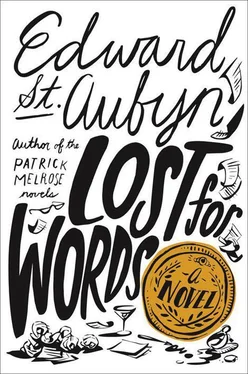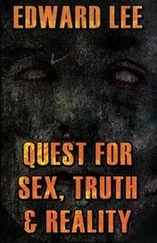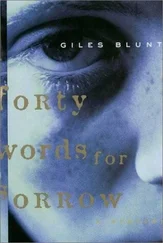This was pure invention, but either it would turn out to be true, enhancing his reputation for prescience, or he would not take on Auntie as a client and nobody, except for these obscure Indian grandees, would know that his prophecy had failed.
‘But it’s a prize for the art of fiction…’ said Auntie, faltering in the face of these further honours.
‘Including fiction artfully disguised as culinary fact,’ said John, beaming.
‘I simply sent my secretary to ask our old cook in Badanpur, who naturally can’t write, to recite the recipes that have been passed down through the generations.’
John Elton let out a gust of confident laughter, as if he were starring in an advertisement for a new mouthwash. There was no doubt that Auntie’s supercilious manner would have to be carefully managed. Just as Magritte hid his surrealism under the uniform of the Belgian Bourgeoisie, India’s Lawrence Sterne takes a mischievous pleasure in playing the grande dame . She appears to get her secretary to ‘write’ a ‘cookbook’ in order to challenge our expectations about the nature of authorship — something like that might work.
‘I hope you can keep this up in the interviews,’ he said. ‘It’s superb: the illiteracy that engenders literature; the rhetoric that denies rhetoric; “I will a round unvarnished tale deliver”, as Othello says, before speaking some of the most beautiful English ever written. And the narrative frames: the secretary who interviews the cook — the man on the quayside who knows a story about the Congo; the man on the coach who could tell you a tale about the Caucasus. Superb!’
‘I’m not following you,’ said Auntie, irritably.
‘Well,’ said John, with the air of a man who is playing along with an entertaining masquerade, ‘at least you’ll admit that it’s an unusual cookbook.’
This simplified formula gave Auntie some relief.
‘Of course, it’s unusual ,’ she said. ‘It’s full of wonderful anecdotes, family portraits, and recipes that have been jealously guarded for centuries.’
‘Wonderful. Would it be possible to see a copy?’ asked John, who was more used to being burdened with manuscripts than pleading to see one.
‘The only copy in England was brought here by Miss Katherine Burns, a friend of my nephew’s. She’s done so much more than we expected. I keep asking Sonny to invite her to lunch, but he hasn’t been able to arrange anything yet.’
‘Oh, I know Katherine,’ said John, ‘we had lunch only the other day. I’d be happy to set something up.’ He tried smiling again at Sonny, but the nephew remained slouched unresponsively in his chair.
‘Thank you,’ said Auntie graciously. ‘I’ll get my secretary to send you a copy of the book.’
‘I can’t wait to read it,’ said John. ‘Playing with textuality can be dangerous, but the audacity of putting it in a “cookbook” is sheer genius.’
‘I suppose so…’ Auntie hesitated. She couldn’t help feeling that if she was going to have a literary agent, it would be better if she had some idea of what he was talking about.
‘Let’s face it, Auntie,’ said Sonny, suddenly bursting in on the conversation with undisguised bitterness, ‘you’re a big-time literary success.’
‘Sonny has,’ Auntie found herself wanting to say ‘also’, but resisted, ‘written a novel, but I’m afraid it’s been overlooked by the committee — most unfairly.’
‘Quite,’ said Sonny. ‘But since there is no interest in representing my work, I will leave you to have lunch together on your own.’
‘On the contrary, I had no idea…’ John began, but Sonny turned away too vehemently for him to finish his sentence.
Overhearing his aunt’s sad reflection that he’d ‘always been oversensitive, even as a little boy’, only added to Sonny’s contempt and fury as he stormed away. Auntie was taking the side of that American agent against her own nephew! Elton hadn’t once mentioned The Mulberry Elephant ; in fact, he behaved as if he had never heard of it! He was too busy sucking up to Auntie, just because she was going to be on the Short List. Sonny had a good mind to get Mansur to finish him off as well, but despite these strong impulses he was too disciplined to lose sight of his primary target.
He had to admit that part of his outrage over the American had been manufactured so that he could get away and at last discuss with Mansur how to dispose of Malcolm Craig, MP. To maintain his little fiction about an agonizing back pain, Sonny had been carried around a good deal by the turbaned brute over the last five days, but somehow it never seemed to be the right moment to make his special request. Now, with his pride freshly stung by that humiliating lunch, he thought he might finally be ready to cut through the awkwardness of asking a servant to step beyond the strict limits of his job description and assassinate an enemy on his master’s behalf.
Didier watched as coffee trickled from the espresso machine in Katherine’s kitchen into a tiny cup resting on the metal grille beneath. Knowing that the fourth espresso was usually the one to tip him into a frenzy of creativity, he knocked back the bitter little draft while it was still steaming, placed the cup directly in the sink, and returned with relish, and a slightly burnt mouth, to his computer. Katherine was out for the day, giving him the further impetus of solitude.
He was soon typing rapidly, thrilled by the intelligence and authority of the words rippling onto the screen.
Nietzsche announced the death of God; Foucault announced the death of Man; the death of Nature announces itself, with no need for an intermediary. As these three elements of our classical discourse dissolve in the acid rain of late Capitalism, we are offered the consolation of its own pale triumvirate: the producer, the consumer and the commodity. Thanks to advertising, the producer sells the commodity to the consumer; thanks to the Internet, the consumer is the commodity sold to the producer. This is the Utopia of borderless democracy: a shift of signifier in the desert of the Real. This is the playground of unlimited freedom: the opportunity to define ourselves through the gratification of an ever more perverse and hybridized fetishism. This is the celebrated openness of a technology that is at the service of perpetual supervision. It is this ‘open’ field that is the supreme disguise: in the absence of the hidden object, we cannot see what we see, because we have abandoned the need to search. As for searching, let our engines do it for us! The thought that cannot think itself is that we will die of thirst before we reach the shining city of individual gratification, which was never made of anything other than the shimmering heat waves of a collectively conditioned desire.
In the rhetoric of bourgeois liberalism, conformity deploys the language of rebellion, precisely because there is no possibility of revolution. We are at the point in history where it is easier to imagine the end of the world than the end of Capitalism. The anxiety once expended on the mutual annihilation of warring political ideologies is now expended on universal annihilation through ecological catastrophe; preferably, of course, a catastrophe that is not going to happen, rather than the one that is happening. We would rather watch a movie about the threat of a meteor from outer space than contemplate the actual impact of the Capitalist meteor on the Earth. We may be frivolous consumers of information, who cannot stop eating popcorn until the US Air Force has saved humanity by destroying the alien meteor with nuclear weapons, or we may be serious consumers of information, who enjoy the voluptuous guilt of betraying the polar bear, or worry that our grandchildren may never know the pleasures of skiing in the Alps, or wish we had bought an apartment on a higher floor of the Manhattan sky-scraper where we live. Finally, it is of no importance, because both catastrophes, the fantastic and the actual, are deployed to distract us from the desert of the Real into which we have marched the exhausted culture of the West. In this desert, it is forbidden to think. Even if Capitalism is the crisis, Capitalism must be the solution!
Читать дальше












